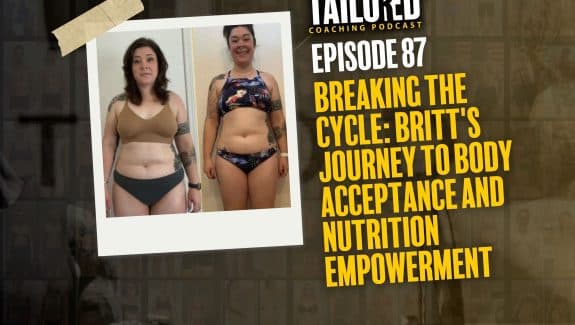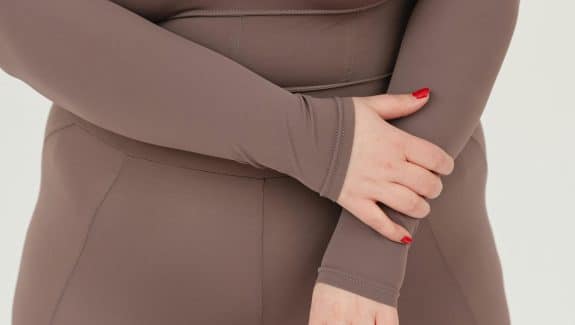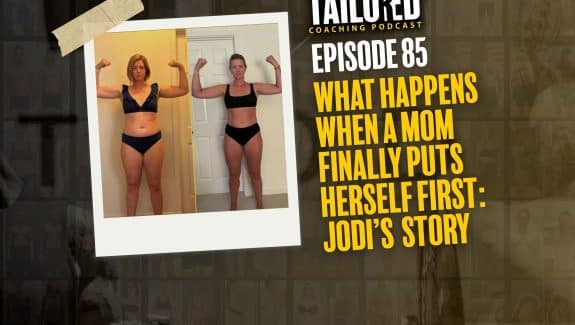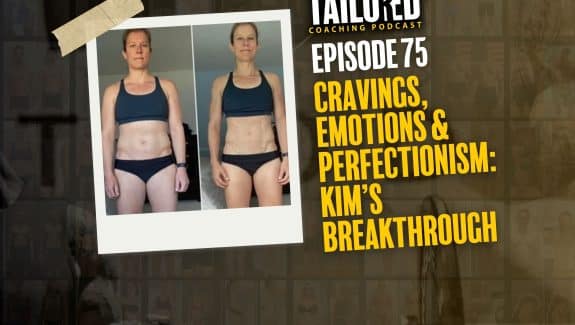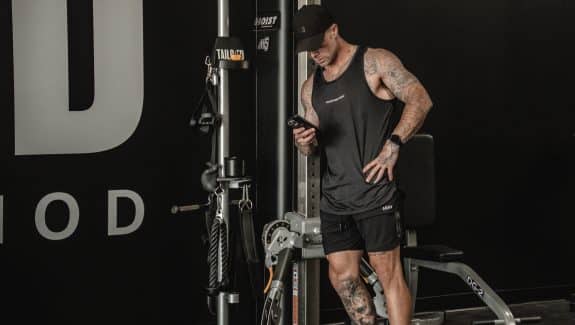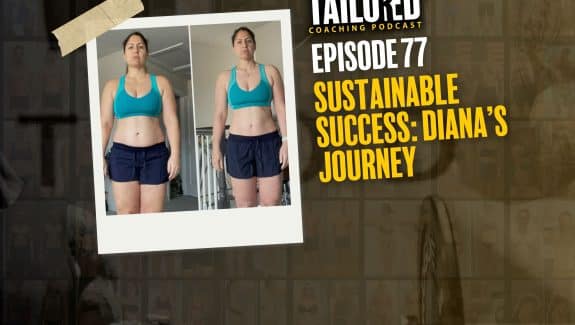There are 4 key parts of health and longevity promotion and today we are discussing Hormones and Aesthetics as well as Lifestyle and MindsetIn last week’s blog we spoke about the things you can do from a movement, training and recovery perspective in order to support healthy aging, as well as from a nutritional perspective. If you missed it click HERE.
This week we will focus on how you can best support your hormones, skin, eyesight etc. for longevity.
Additionally, we are going to look into what lifestyle and habit practices actually form the foundation for a healthy, happy, long life and how you can take action on those.
“Rather than a focus on morbidity or disease, healthy ageing is defined as ‘the process of developing and maintaining the functional ability that enables well-being in older age, with functional ability determined by the intrinsic capacity of the individual, the environments they inhabit and the interaction between them.’.” (3)
The 4 Categories for healthy aging practices are:
→ Physical Activity (Part 1)
→ Nutrition (Part 1)
→ Hormones & Aesthetics
→ Lifestyle & Mindset
Aesthetics and Hormones

27. Manage Cortisol as best as you can
When someone is stressed, it is not hard to see in their eyes, skin, body language, often they complain of pains, digestive issues… Stress and therefore cortisol release is one of the main things accelerating aging. Some cortisol is great and even essential so that we get stuff done, adapt to stimuli (and progress/improve), but unfortunately in most of our lives cortisol through constant/too much stress has taken the overhand and can lead to sleep problems, mental health disorders, decreased recovery, decreased performance and mental capacity… so basically accelerated aging on every level. If you want to check out the full scoop on cortisol check out our blog HERE.
Main causes for chronically elevated cortisol levels are:
→ Lack of sleep
→ Over training or no physical activity at all
→ Malnutrition (too little or too much, especially too much processed foods)
→ Too much caffeine and alcohol
→ Lots of work stress or emotional stress…
Let’s also look back at ‘the Blue Zones’:
‘Stress is part of the human condition and people in blue zones often suffer the same stresses that others do. However, the people living in blue zones have daily rituals that reduce stress and reverse the inflammation associated with stress. Rituals varied and included activities such as prayer, ancestor veneration, napping, and happy hour.’ (35)
We will look closer at what lifestyle changes you can make in order to manage your stress better, but aside from regulating your physical activity better, a good amount of high quality nutrition, with minimal caffeine, alcohol and processed foods is a great start.
Additionally, you may also want to consider implementing adaptogens, plants that help the body resist stressors of all kinds, whether physical, chemical or biological. These herbs and roots have been used for centuries in Chinese and Ayurvedic healing traditions.
Examples are rhodiola, ashwagandha or cordyceps.
28. Don’t neglect insulin
Insulin also plays a huge role for healthy aging, mostly because it is the counterpart to Cortisol.
Many people think insulin is only something to be mindful of as a diabetic. First of all, not paying attention to insulin can very well LEAD to diabetes, but it can also lead to a range of other things like the inability to lose weight, put on muscle, insomnia, mood swings… (all of which, once again, accelerate aging)
An important thing to know is that insulin is inverse to cortisol. That means when cortisol is high insulin should be low and vice versa.
For example: morning cortisol should be high so that you feel like you have the energy to get stuff done. That means the last thing you want to do is spiking your blood sugar with a sugary breakfast. Much better would be healthy fats and protein.
After your training however, we do want to curb cortisol to initiate the recovery process. Which means we do want insulin to go up. A fast releasing carb is actually beneficial in this case. Before going to bed is another time when we want to bring cortisol down to enable you to have a good night’s sleep. Carbs can help us with this. However, refrain from carbs in the evening that will spike your blood sugar throughout the night (likely causing you to wake up to go to the bathroom) and stick with slow releasing carbs, combined with protein and some fats.
Nonetheless, particularly when it comes to meal frequency and overall carb content of the diet individualization is key. Some people can manage their blood sugar better with more frequent small meal portions and others prefer larger but fewer meals. There are no standardized rules here and it is important to assess, listen to your body and adjust accordingly.
If you want to learn more about this interesting hormone, check out our hormone 101 blog HERE.
29. Keep Testosterone high
Keeping testosterone levels up as we age is not just important for men.
In over 100 studies, lower labels of testosterone have been associated with low energy, low libido, infertility, higher risk of cardiovascular disease, abnormal EKGs, more frequent heart failure, metabolic syndrome, insulin resistance… So get your hormones tested regularly and make sure you ask for both “total testosterone” and “free testosterone”. In some cases TRT (testosterone replacement therapy) might be necessary, BUT don’t be hasty and make sure you have tried everything naturally through nutrition, lifestyle and training adjustments before jumping to quick measures.
‘The association of lower testosterone levels with lower muscle mass and other age-related conditions suggests that testosterone therapy might be beneficial in some older men. There are varying degrees of evidence of potential benefits of testosterone treatment in older men, including positive changes in body composition; improved strength; positive effects on fatigue, mood, and sexual function; and increased bone mineral density. Further, there are potential adverse effects, including obstructive sleep apnea, urinary obstruction, gynecomastia, polycythemia, benign prostatic hyperplasia, and prostate cancer.’ (36)
30. It’s about getting to the right amount of Estrogen
Estrogen – Another hormone that is important for both men and women. Often we associate estrogen with something negative – man-boobs, PMS symptoms, mood swings, water retention… When actually estrogen is not all bad, on the contrary. If in balance with progesterone and our other hormones, estrogen has many great qualities. Much of the prevailing issue of estrogen usually being too high goes back to the same root causes as for elevated cortisol levels (or women being on hormonal birth control for so long that their own bodies don’t “remember” how to run its own reproductive system).
‘Estrogens may potentially stimulate muscle repair and regenerative processes. It is thought that estrogens influence indices of muscle damage and repair by acting as an antioxidant, thus limiting oxidative damage.’ (37)
So as a woman, in your reproductive years try to take care of your progesterone as much as you can (to balance out estrogen), not necessarily for fertility’s sake, but more as a mood enhancer, which also has anti-aging qualities. During and after menopause, estrogen levels are going to be all over the place. Monitor under medical supervision and manage as best as you can with nutrition, lifestyle and physical activity.
Even for men, as you get older more and more testosterone converts to estrogen and can contribute to strokes, diabetes, prostate cancer, increase in body fat, erectile dysfunction etc.
So keep an eye on your estrogen levels, have them checked regularly and don’t play it lightly.
31. Keep your thyroid healthy
Similar to insulin, most people don’t pay attention to their thyroid until they have a problem with it. Your thyroid gland regulates things like breathing, metabolism, menstrual cycle, body temperature, the central and peripheral nervous system…Underactive thyroids are and more of a thing now and often get diagnosed when people find themselves lacking energy, struggling with fat loss or muscle gain, digestive issues… Studies on direct links between thyroid health and longevity are inconclusive, but solely thinking of the effects that an impaired thyroid has on quality of life (meaning that the increased fatigue or failing to achieve desired aesthetic results) would imply that it has at least an indirect negative effect on healthy aging.
Proper nutrition is one of the best ways to take care of your thyroid. Iodine, Selenium and Zinc are very important for thyroid health. More vegetables and healthy fats (nuts, seeds, avocado, eggs…) less refined carbs, more fiber (for example from legumes), protein from things like sardines, tuna, shellfish etc. is a great place to start.
In addition to limiting processed foods, if you are hypothyroid, you could potentially also benefit from limiting foods which contain a high amount of goitrogens, such as soy products, cruciferous vegetables, and selected nuts and starchy plants.
32. Take care of your eyesight
Eyesight decreases over the course of the years, that is a natural process. However, nutrition plays a huge role in maintaining eye health for as long as possible.
‘There is evidence that dietary antioxidants and anti-inflammatories may provide benefit in decreasing the risk of age-related eye disease. Nutrients of interest are vitamins C and E, β-carotene, zinc, lutein, zeaxanthin, and the omega-3 fatty acids eicosapentaenoic acid and docosahexaenoic acid.’ (38)
‘Good sources of vitamin C include citrus fruit, berries, tomatoes, and broccoli. Good sources of vitamin E are extra virgin olive oil, wheat germ, nuts, and legumes. β-Carotene can be found in carrots, apricots, sweet potatoes, and pumpkins. Oysters, beef, and other meats are rich sources of zinc. Nuts, legumes, and dairy are relatively good plant sources of zinc. The two foods that were found to have the highest amounts of lutein and zeaxanthin were kale and spinach. Other major sources include broccoli, peas, and brussels sprouts. Fish oils are the primary source of omega-3 fatty acids.
A healthy diet including a variety of fresh fruit and vegetables, legumes, lean meats, dairy, fish, and nuts, will have many benefits and will be a good source of the antioxidant vitamins and minerals implicated in the etiology of age-related eye health.’
Of course, there are other things that also play a role, such as screen and blue light exposure, sun exposure, sleep, hydration which should be managed in the best way possible.
33. Minimize paraben exposure
Parabens are a class of widely used preservatives in cosmetic, pharmaceutical and household products. They are used to prolong shelf life in many health and beauty products by preventing the growth of mould and bacteria within them. When you use these products, they can also enter your body through your skin. Once they are in the body they can dock onto estrogen receptors and alter our hormone profile in that way, that means they are endocrine disruptors. We have already explored how an unbalanced hormonal profile can impact lifespan and more importantly quality of life in a negative way. Unfortunately, it is not just a case of looking for ‘contains parabens’ on bottles. When it comes to studying labels, names to look out for are butylparaben, methylparaben and propylparaben aka the most commonly found parabens.
One way to know for sure that you are limiting paraben exposure is by purchasing organic skincare and cleaning products.
34. Replace plastic where possible
Adding to the point above, plastic also contains endocrine disrupting chemicals. The main one being BPA. However, it is not as simple as looking out for plastic products advertised as BPA-free, because the alternative chemicals used in place of BPA still act as endocrine disruptors.
That means you are best off switching things like plastic containers for glass ones, plastic coffee cups for stainless steel ones, plastic bags for paper bags or jute bags…
There is also a large amount of BPA in store receipts, which means you are wise to either refuse those or make sure to wash your hands after touching them. (39)
35. Go the extra mile for your skin.
The skin is usually one of the first places where we notice unwanted aging (in the form of wrinkles, sun marks etc). In addition to the healthy diet advice we have already given (high in antioxidants), proper hydration and some lifestyle advice for healthy skin aging which is to follow (such as ‘beauty’ sleep :), there are other things that could potentially help keep your skin looking younger for longer.
For example: red light therapy (through infra- red saunas or devices for home use), implementing collagen, cQ10 and biotin.
‘Preliminary results are promising for the short and long-term use of oral collagen supplements for wound healing and skin aging. Oral collagen supplements also increase skin elasticity, hydration, and dermal collagen density.’ (40)
‘There are well documented reductions of tissue CoQ10 in senescence. It is not known if low CoQ10 is an effect of aging, perhaps matching the fall in mitochondrial electron transport function or a contributing cause to the aging process. There is accumulating evidence that some diseases of aging may benefit from supplemental ubiquinol or CoQ10 treatment.’ (41)
‘A promising strategy for enhancing skin protection from oxidative stress is to support the endogenous antioxidant system, with antioxidants containing products that are normally present in the skin. However, this should be not confused with a permanent intake of non-physiological high dosages of isolated antioxidants. Fruit and vegetables consumption may represent the most healthy and safe method in order to maintain a balanced diet and youthful appearing skin.’ (42)
Lifestyle and Mindset
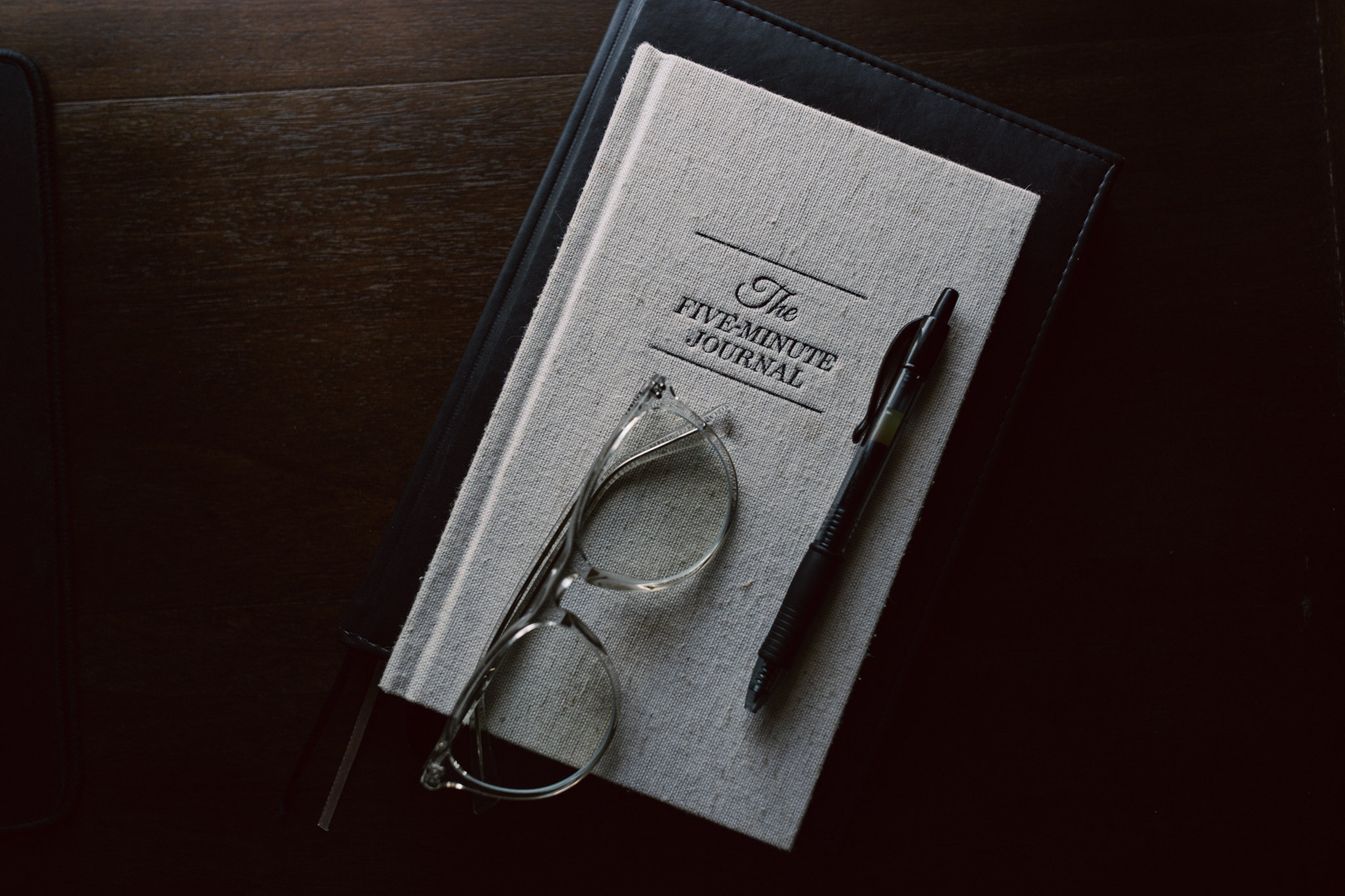
36. Get at least 7 hours of sleep opportunity
It’s called beauty sleep for a reason :). If we don’t get enough sleep we notice we have bags under our eyes, we don’t look as fresh and we most certainly don’t perform as well as we do after a restful night. Sleep is when most regenerative processes are ramped up, it is when toxins get cleared out of our body AND it is when brain connections get stabilized or eliminated (because they are no longer deemed necessary). This is also one of the reasons why insufficient sleep over the course of your life can facilitate or expedite cognitive diseases like dementia or Alzheimers. Symptoms of ‘sleep deprivation’, such as impaired cognitive function, higher hunger signals, slower reaction time etc start with as little as getting less than 7 hours of quality sleep. Aiming for 8 hours of sleep opportunity is a great practice so that even accounting for the time it takes you to go to sleep and potential sleep disruptions you can still ensure your 7 hours of shut eye. If you want to deep dive into the topic of sleep, we highly recommend checking out Mathew Walker’s book “Why We Sleep”. Something good to note is that while total weekly sleep matters, you can’t quite “make up” for sleep in that sense. So if you always skimp on sleep during the week and think you can just catch up on the weekend that is not quite true. You might feel rejuvenated after the weekend, but brain structures lost during the week remain lost. Impaired performance during the week remains. Naps can help somewhat, but still, a decent full night sleep is unmatched. One slightly sad last thing to add, is that on average shift workers die earlier and fall victim to things like Alzheimers and dementia more often. These are facts that cannot be dismissed. Might be hard to hear, but the best strategy for managing shift work and sleep is to have an exit strategy for the position, even if there are ways to help mitigate the negatives of shift work, you can never fully ‘undo’ the damage..
37. Improve quality of sleep
But time spent in bed is not everything. It is also about the quality and whether we are actually moving through the different stages of sleep that we are supposed to go through. Even gadgets like the oura ring or fitbits can indicate the quality of our sleep, but even more helpful precursors are things like “how many times per night do you wake up?” and “does it take you a long time to go back to sleep?”. If you are showing some ‘abnormal’ patterns (like getting up multiple times per night to go to the bathroom), chances are something is not quite right with your hormones. If you want the full scoop on how you can improve your quality of sleep check out our full sleep guide.
38. Get your dose of daylight exposure
One major contributor to disrupted sleep patterns is our disconnect from natural daylight. This often causes our circadian rhythms to be ‘confused’ not sure when to initiate sleep or rising time. One of the best things you can do to help with that is to make sure you go out into natural daylight daily. Preferably within the first 30 minutes after getting up, but some daylight at any stage is better than none.
In addition to the positive effect on sleep, this will also benefit your Vitamin D levels (why is generally the vitamin people in Western cultures are almost always deficient in).
‘Vitamin D deficiency is a common, serious medical condition that significantly affects the health and well-being of adults. New studies have shown promising data regarding vitamin D’s role in various health outcomes, such as bone and cardiovascular health, cancer, and the immune system. Optimal vitamin D status is necessary for the absorption of calcium and phosphate required to preserve mineral homeostasis and bone health, as well as maintaining skeletal muscle performance.’ (43)
Your first thought might be “but won’t this damage my skin and lead to faster skin aging? Should I be using sunscreen?” The answer is that depends. I am not necessarily talking about suntanning, more just being in daylight. And yes unprotected suntanning, midday in the middle of summer for a couple of hours most likely will. But you don’t want to be too hasty with your sunscreen. 10-15 minutes of direct skin exposure to the sun can ensure you are actually getting any Vitamin D. Also, some research suggests that low quality sunscreen could actually be contributing to skin cancer rather than preventing, due to all the chemicals in the lotions.
39. Go into nature daily
This is different than just going into daylight. Nature has a positive effect on mood, mental health, and has also shown to increase self-sufficiency, vitality and physical activity.
‘Being in nature and being active were both related to greater self-reported physical functioning, less fear of falling and fewer depressive symptoms. The emotional functioning outcomes replicate previous studies that have employed self-report measures of physical activity and outdoor time. Studies have also shown that going outdoors can have long term functional health benefits for older adults. The relationship between Vitamin D and bone health is also well established. (44)
Even if you live in the city, find a park or lake you can go to, and if all else fails make sure you schedule regular weekend getaways into nature.
40. Keep blue light in check
Circling back to the topic of sleep, but also eyestrain, stress and anxiety/ cortisol, we actually need to put a conscious effort into monitoring and limiting our blue light exposure. Blue light from our electronic devices keeps our body from releasing the sleep inducing hormone melatonin. You might experience days where you were looking at a screen for a long time and either got a headache or wanted to rub your eye or just felt more exhausted. It is work for our eyes to look at blue light all day long. All the colors and stimulation through fast scrolling is also causing our body stress, even if that doesn’t necessarily seem like a logical connection (because you might think things like social media help you relax…). The point here is: wear blue light blocking glasses if you look at screens all day long or at least the last few hours of the day to help with sleep. Be mindful of your screen time and try to limit it as best as you can the hour before bedtime. Your eyes, your sleep, your hormones and your mental health will thank you.
41. Find the right Work- Life- Balance
Balance. People are always talking about finding ‘balance’. Balance doesn’t mean that you need to direct equal attention to family – work – health etc, you just need to find a balance that works for you. That allows your health to be in a place where you can feel good and be there for your family and perform in a way at work that you want to. YOU decide what is important to you and where your main focus lies and what deserves larger amounts of attention at what time in your life in order to live long, healthy and happy. It would be silly to disregard any area in your life completely and not to think that they would be interconnected. It would also be silly to think that over the course of your life your priorities don’t shift. Starting your day off with a good morning routine can be a good way to fit in some self-care and to make sure your actions align with your vision for your day and for your life essentially. (Check out our full blog on how to create the perfect morning routine).
‘Work, family and personal life should be complementary to each other and not conflicting with each other. Some are successful in their careers but fail in family and personal life, whereas some others who have a vibrant personal and family life are below par at work. Being successful in one sphere of life at the cost of the other is not a healthy sign. In the long run, family happiness and a decent personal life are key determinants of a successful career. A balancing act among these domains may not be as easy as we think, but a sincere attempt in this direction will definitely yield fruitful results.’ (45)
42. Go on vacation regularly
Going on vacation should not be an ‘escape’ from your normal everyday life. If this is the case you should reconsider your ‘normal’ life and make changes there. Going on vacation is about getting out of your routine, recharging, reconnecting with yourself or loved ones, coming back with new ideas and inspirations, opening your world up to new things, expanding your horizon, exploring new cultures, also experiencing some discomfort being out of your normal environment… You don’t have to spend a fortune and fly to the other side of the world to do so. You may even be able to do so on a camping trip somewhere 20 minutes from your house. Stop thinking ‘I will take more vacations when I am retired or when the kids grow up or when we are less busy at work…’ There will never be the perfect time. Make time for it. You will thank yourself later. In the end, experiences and memories are part of what makes our life worth living.
‘Research suggests that not taking annual vacations is associated with illness or even premature death.
Think for instance of psycho-physiological health (e.g., cardiovascular parameters), performance and long term workability, the ability to get another perspective on life, creativity and relationship quality. Vacations may also prevent demoralization in the workforce and create psychological resilience to buffer future stress. Thirdly, it could also be that general health and wellness return to baseline levels rapidly after vacation, but that vacation memories have the power to increase well-being again, but only temporarily. Asking why we should keep going on vacations is therefore comparable to asking why we should go to sleep considering the fact that we get tired again. A period of effort investment at work should necessarily be alternated with periods of recovery in order to remain healthy in the long run. Therefore, instead of skipping vacations or taking only one long vacation in years, it seems much more reasonable to schedule several shorter vacations across a work year in order to maintain high levels of health and wellness.’ (46)
43. Put effort into personal development
You might be thinking ‘what does this have to do with healthy aging?’. You are certainly right in the way that reading a book here and there is not going to even out any wrinkles overnight. But personal development is much more than just occasionally reading a couple of lines. Personal development refers to more – it is continuously striving to improve in EVERY area of your life. Working on your relationships, your business, your health, your temper, how you perceive things, your knowledge…
So indirectly laying focus on personal development is the FOUNDATION for any anti-aging strategy and for making the most out of your life. It should be what is driving you to want to live a healthier, happier, longer life, because that is what the better version of you requires you to do. The next few points are all ways how you can also work on your personal development, outside of your job, nutrition and fitness.
44. Continuously educate yourself
Continued education over the course of your life is not just beneficial for establishing and maintaining brain connections over the course of your life, it can also bring you ahead in your career, understand world matters better, provide you with a sense of meaning and purpose, answer some of your big questions, help you live a healthier life, understand your relationships and yourself better, provide entertainment and therefore contribute to your happiness… This doesn’t have to be in a scholarly way, it could be you learning a new instrument, new language, taking a cooking class, attending a weightlifting seminar…
“Anyone who stops learning is old, whether at 20 or 80. Anyone who keeps learning stays young. The greatest thing in life is to keep your mind young.” – Henry Ford
45. Practice gratitude daily
Being grateful for what you already have is going to do a number of things for you. It will put you in a more positive state of mind straight away, rather than just focusing on what you are lacking. It will position you as a more appreciative person (for example when someone brings you a cup of coffee and or does their job well and you thank them for it). And if practiced continuously, your outlook on life will become more positive overall. Naturally, many of us tend to see the negative things first. That is why for most of us it really is a gratitude PRACTICE. Something we need to put effort in. This should be part of your morning routine and can be as simple as writing down 3 things that you are grateful for.
‘Higher optimism was associated with increased likelihood of healthy aging, suggesting that optimism, a potentially modifiable health asset, merits further research for its potential to improve health in aging.’ (47)
46. Foster your social connections
Looking back to the people living in the Blue Zones once more, another thing they had in common was – a strong social integration. They reported feeling supported, loved, cared for and their relationships were one of the most important things to them. Relationships require work – time commitment, empathy and often they come short in our busy lives. Even the relationship we have with ourselves, our spouses or children. Keep in mind that this is something you will never get back. Some opportunities to show love only come around once. Make sure you have your priorities right, don’t waste time on people that don’t value or deserve your time and invest in those who do.
‘Centenarians spend a lot of time and effort working on their relationships for example with their spouses and children. Compared to centenarians in nursing homes, those residing in the community were more than twice as likely to be able to eat without help and to receive most of their nourishment from typical foods.’ (48)
47. Stay around younger folk
People adapt to their environment. If you hang out around people that watch TV all day long, it’s likely you will be more prone to watching TV than throwing around a ball yourself. As we get older some people step into the “I’m too old for that” much sooner than others. Soon enough they get scared to do things (like riding a bicycle, driving in traffic, trying new things…). Much of how old you are feeling or how old you are presenting yourself has been referred back to the environment you spend the most time in. (49) So be conscious of the company you are seeking out, spend more time with your children or grandchildren, with people young at heart that make you feel alive and thriving and not like life is basically over at 50.
48. Practice Spirituality
You don’t have to be religious or follow a certain faith, this is more about believing in something other than yourself.
“People who pay attention to their spiritual side have lower rates of cardiovascular disease, depression, stress, and suicide, and their immune systems seem to work better … To a certain extent, adherence to a religion allows them to relinquish the stresses of everyday life to a higher power.”—Dan Buettner, Blue Zones
49. Reflect, evaluate, course correct and adjust to the different stages in life
It is not by accident that those species that are able to adapt to external changes the best have survived over the centuries. Us humans are no different, we naturally adapt to what life throws at us, but unfortunately that also goes into the negative direction. If we are too sedentary for too long our body adjusts. If we are under too much stress for too long, we constantly run in cortisol overdrive. Reflect on what habits and things in life serve you and your goals and which ones don’t. Raise your awareness of those habits that lead you astray from the path of a long, happy and healthy life and those that you should work on. Course-correct frequently as your circumstances and priorities in life constantly change.
You can’t expect your body and mind to work the same way as a 50 year old as it did when you were 20 (which is usually a good thing). Believe in neuroplasticity, so your brain’s ability to change and adapt a growth-oriented mindset rather than being stuck playing victim in a fixed mindset. Growing old and continuous self-improvement in every area of your life are not contrary to each other whatsoever. Yes, a certain physical decay is part of the course of life, but following these 50 rules you are on the best way to maximizing your time here on this earth.
50. Don’t take yourself or life too seriously 🙂
If you are feeling a little lost in any of these areas of life, click HERE to apply for a free strategy call for our Tailored Coaching.
Sources:
- https://www.ncbi.nlm.nih.gov/books/NBK298903/
- https://www.ncbi.nlm.nih.gov/books/NBK216164/
- https://www.ncbi.nlm.nih.gov/pmc/articles/PMC3636678/
- https://www.ncbi.nlm.nih.gov/pmc/articles/PMC3693724/
- https://www.ncbi.nlm.nih.gov/pmc/articles/PMC3554682/
- https://www.ncbi.nlm.nih.gov/pubmed/30681787
- https://www.ncbi.nlm.nih.gov/pmc/articles/PMC6627360/
- https://www.ncbi.nlm.nih.gov/pmc/articles/PMC3583891/
- https://www.ncbi.nlm.nih.gov/pmc/articles/PMC4399494/
- https://www.ncbi.nlm.nih.gov/pmc/articles/PMC3546779/
- https://www.ncbi.nlm.nih.gov/pmc/articles/PMC3025152/
- https://link.springer.com/article/10.1007/s10902-012-9345-3
- https://www.ncbi.nlm.nih.gov/pmc/articles/PMC6310050/
- https://www.ncbi.nlm.nih.gov/books/NBK298903/
- https://www.ncbi.nlm.nih.gov/pmc/articles/PMC5516623/
Links to our website:
https://tailoredcoachingmethod.com/cortisol/
https://tailoredcoachingmethod.com/sleep-guide/
https://tailoredcoachingmethod.com/greatest-morning-routine/
https://boomboom.securechkout.com/coaching-application
https://tailoredcoachingmethod.com/how-to-get-jacked-as-a-vegan/
Others:
https://www.healthline.com/health/stress/smart-girls-guide-to-adaptogens#how-do-they-work
https://www.bluezones.com/2017/07/religion-may-reduce-stress-increase-longevity/



